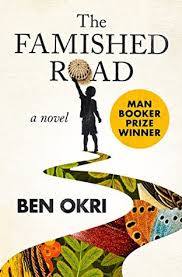
In most countries, summer is chosen as a time to read books published regularly to meet the season’s market demands. Why is summer preferred to promote reading and publishing? It is a season full of light and sunshine, a time of going out, entertainment, and joy as people come out of the terrible wintertime in Western countries in particular. Here in Africa, we don’t have seasonal reading times and seasonal literary activities. We don’t have literary events particularly designed for the seasons. Africa is either sunshine or rainfall. No snowfall, no long and dark winters. And there is no need to celebrate summer readings because there is no summer season in Africa.
But we can try to invent something akin to ‘summer readings’ by using the rainy season in Ethiopia for instance, to promote readings of selected books from Africa. Given the fact that African literature largely remains unknown in many African countries including Ethiopia, it would not be out of place to promote African writing at a particular time of the year.
To start with, this columnist has selected a series of novels selected by critics’ ad publishers as contemporary best African novels worthy of reading at this time or at any time. Their selection is based on critical reviews, their publishing success, and their acceptance by the reading public worldwide. These are not novels that are confined to the continent. They are rather international bestsellers. These selections are not only enjoyable to read but also sources of imagination and inspiration for people who live inside and outside Africa.
Ethiopian readers hardly turn to African writers of African novels or any other book in any other genre. The reasons are clear. Most, if not all, books and novels in Africa are written either in English or French or in the local languages that are not accessible to Ethiopian readers. A few isolated attempts have been made in the past to translate some of the best African novels into Amharic. One of them is “Things Fall Apart” by Chinua Achebe. Yet, most African writing remains out of reach of readers in Ethiopia. This is also the legacy of colonialism that has developed vertical relationships between African writing and the colonial educational system that confined African writers to Western influences, while horizontal relationships among the African elites have always remained largely absent. African readers and African writers should therefore break this old paradigm and come closer to celebrating African culture and African writing.
Below are some of the most celebrated African novels by emerging writers who are presently shining not only within the continent but also globally. The following best African novels are recommended by Blessing Musariri, who is herself a writer. She has penned what is considered one of the best African novels entitled “This Once, Are You Immaculate”
Read
Musariri says the following in an interview: “We are connected to the spirit, and it is an active connection. It is not somewhere that is only in the afterlife, it is here in the present as well. That, I think, is endemic across all African cultures and traditions,” says Zimbabwean novelist and poet Blessing Musariri. Here she recommends some of the best African novels, books that had a big personal impact and have stayed with her. Musariri has written the following words in her introduction to her best African novel selection. This columnist has brought it here in full because it is an objective assessment of the best books and best novels in Africa.
Musarir is talking about African novels Sub- Saharan Africa, to be more specific. Before we talk about the books individually and why you chose them, can you tell me a bit about African novels in general?
I only started reading African novels when I went to university, from the age of about 18 upwards. That is when I started realizing that I should probably try and read more African books because our school system here in Zimbabwe is very British. We studied Chaucer, Shakespeare, and Dickens, so I grew up knowing those authors: they were the mainstream, the classics you needed to have read.
We had the African classics—Ngugi wa Thiong’o, Chinua Achebe—but we had not been taught them at the school that I went to, so I wasn’t exposed to them. It was quite an awakening for me when I started getting into the literary scene, which wasn’t until maybe my late 20s that I felt so ignorant of literature from Africa. And I think there’s a certain stage where, if you don’t read certain books at school, it becomes a mission that you have to read them. It is not necessarily out of pleasure anymore, but out of a sense of obligation: ‘How can I be in this space without knowing these writers and their stories—our stories?’ You start to realize, ‘Gosh, I’ve grown up with a completely one-sided mindset about my continent, the place where I come from.’
The only writer of note I did know growing up was Tsitsi Dangarembga. I had read Nervous Conditions in my teens because I’d heard a lot about it. It was one of the books that made it into the mainstream very early on. She was the first Zimbabwean woman published in English and it came out around the time I was reading independently and starting to widen my horizon.
The book was a big deal.
Now there is so much to read that I have to read very purposefully. I don’t think, ‘Oh, this is an interesting book. Why don’t I pick it up?’ I think, ‘I now must read this book. Everybody’s talking about this writer. I must also read about this writer and stay up-to-date. But it’s a huge undertaking, especially now because African writing has become quite mainstream. Before, it wasn’t, it was quite a specialist thing.
When I think of the time The Famished Road came out, Ben Okri’s novel was a big book out of Africa. I’m sure other people who were already in the world of African literature would have different viewpoints but, for me, that was my first book. It opened my mind up to what was possible with African literature in the mainstream, and I think that’s probably why I picked it as one of the best books.
Musariri is particularly fond of Ben Okri’s “The Famished Road”. Below, she reflects on the merit of the book and its significance in African or Nigerian culture and tradition.
I read The Famished Road, and it felt like a reality I understand, about the spirit child moving in and out of the world. I gather that in Nigeria these spirit children are known as abiku, they’re the souls of children who have died before reaching maturity. Do you think you need to understand local folklore to appreciate the novel?
I don’t think you need to at all. It’s a story. You just have to be open to believing the story, or not even believing it, just being able to appreciate it, to find something in it that appeals to you—even if it’s just the language or the cadence of the words. Whatever it is, so long as you find something in that story that works for you, you don’t have to know everything. I don’t know everything about every novel that I read. Some novels will obviously hit differently than others, based on your own personal experiences and your mindset.
Also, presumably traditional beliefs vary a lot across Africa: in Nigeria they aren’t the same traditions as in Zimbabwe.
No, they’re not. It’s just the simple principle that we are connected to the spirit and it’s an active connection. It’s not somewhere that’s only in the afterlife it’s here in the present as well. That, I think, is endemic across all African cultures and traditions.
Ethiopia too has prominent writers who mostly write in their mother tongue and have not been able to make any impact on the global and African literary scene. True, some of them have written remarkable books in English. We can mention for instance Sahele Selassie Birhane Mariam who wrote Fire Brands and Warrior King, Abe Gubegna who wrote and published the “Savage Girl” and other works in Amharic. Although Abe’s works were excellent for a writer who works in his second language, they were not however strong enough to attract international attention. Dagnachew Worku, author of “The Thirteenth Sun” was perhaps the first Ethiopian writer whose work was published by Heinemann Publishing. Heinemann Publishing also published Sahele Selassie’s works.
There are also contemporary writers both here at home and in the Diaspora who have published remarkable novels that have even splashed on the international literary scene. Meseret Mengiste who was shortlisted for the British-based Booker Prize, Dinaw Mengistu who won literary prizes in the United States where he studied and still lives. These are two of the prominent Ethiopian writers who have shown promise of great works to come. None of them however attained the status of Chinua Achebe or Ngugi wa Tiongo. It is a pity to realize that no Ethiopian writer has so far produced something that could rank as “the best novel of Africa”.
BY MULUGETA GUDETA
THE ETHIOPIAN HERALD WEDNESDAY 7 AUGUST 2024




